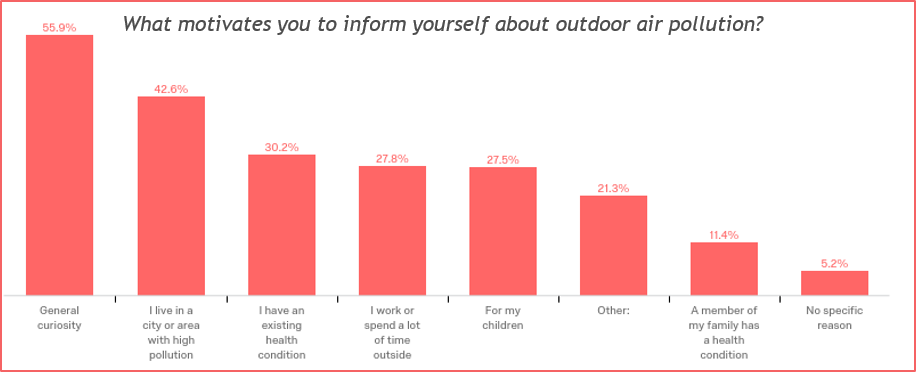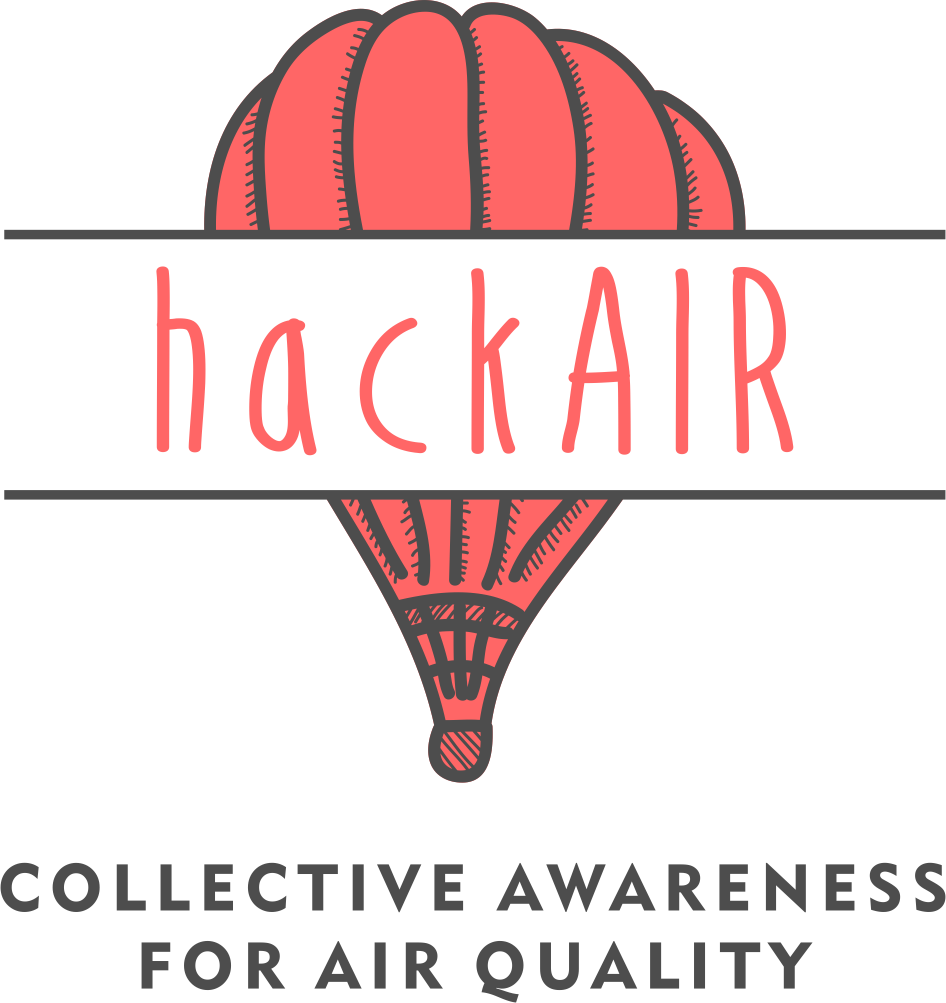Between May and July 2017, the VUB research group SMIT conducted a multi-language survey to explore the awareness and behaviour of citizens in the context of air pollution, as well as the interest to measure it. After the first data collection, close to 400 people from Norway, Germany and other countries gave their input, including 261 in German, 64 in English and 47 in Norwegian.
 We found that levels of awareness about the causes of air pollution are high amongst our sample, who regard traffic, emissions from industry and burning from household activities as the three main sources of particulate matter pollution. Awareness levels about the associated impacts of air pollution were similarly high – the main adverse effects identified include threats to health, effects on nature and lower quality of life. However, citizens indicated that they are less informed about which individual steps they can take to reduce air pollution.
We found that levels of awareness about the causes of air pollution are high amongst our sample, who regard traffic, emissions from industry and burning from household activities as the three main sources of particulate matter pollution. Awareness levels about the associated impacts of air pollution were similarly high – the main adverse effects identified include threats to health, effects on nature and lower quality of life. However, citizens indicated that they are less informed about which individual steps they can take to reduce air pollution.

Our results pinpoint that people are generally curious about air pollution, and have an interest given their proximity to urban areas. This is also in line with the finding that people also regard pollution at the city level as a more clear and present problem than nationwide or neighbourhood specific pollution. We learned that traditional media channels such as newspaper, radio and television remain central sources of information about air quality. The value of digital channels also emerged, however, with one in four people benefiting from social media, websites and online platforms.

Importantly, our results show that citizens want to be engaged in policy dialogues and workshops around the topic of air pollution, and are interested in viewing and measuring data in real-time. They see value in connecting to related projects around air pollution, but also show that there are several challenges around the technical skills involved to build, measure or understand the data generated by low-cost sensors and our mobile application. For the next year, these points will underpin our approach to community-based engagement, focusing on real-time air pollution, support and training, and learning by doing in workshops.

If you would like to find out more about the hackAIR survey, feel free to contact Carina Veeckman from VUB-SMIT on carina.veeckman@imec.be.



